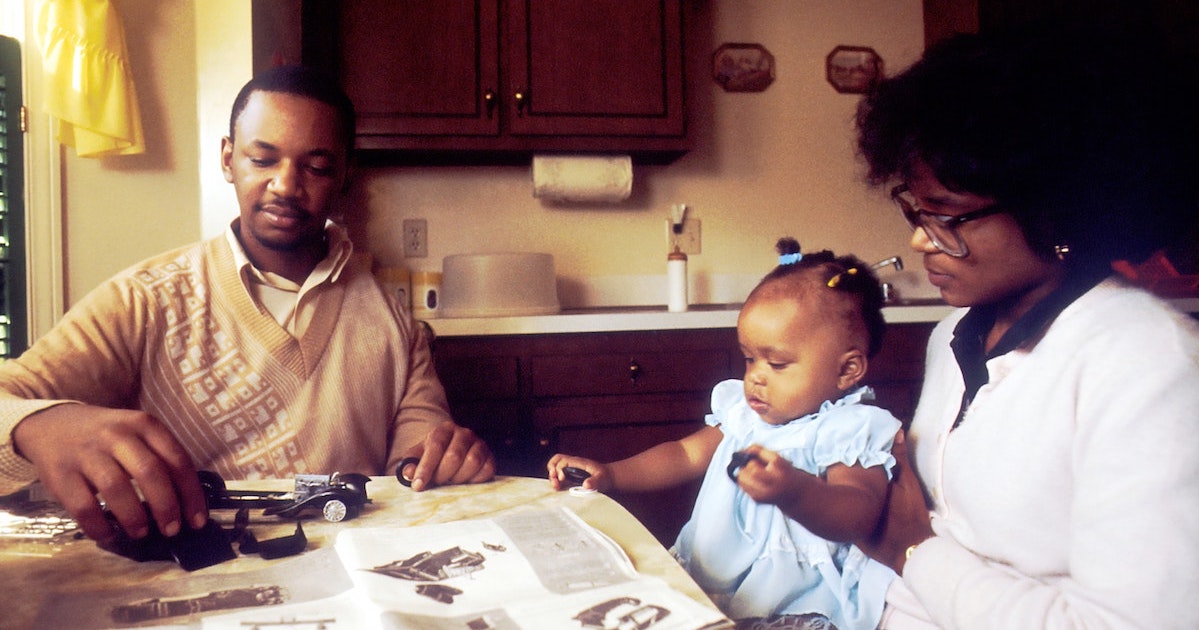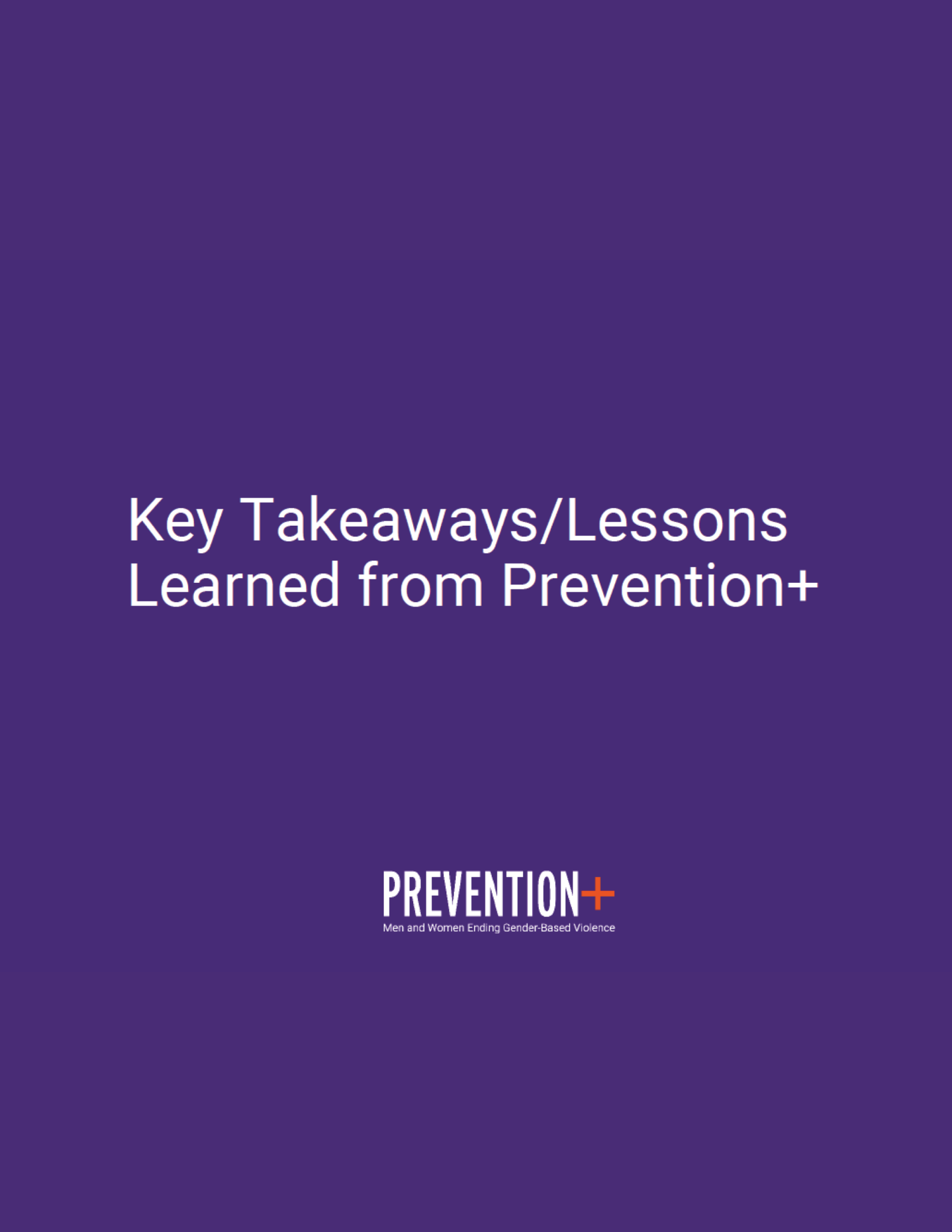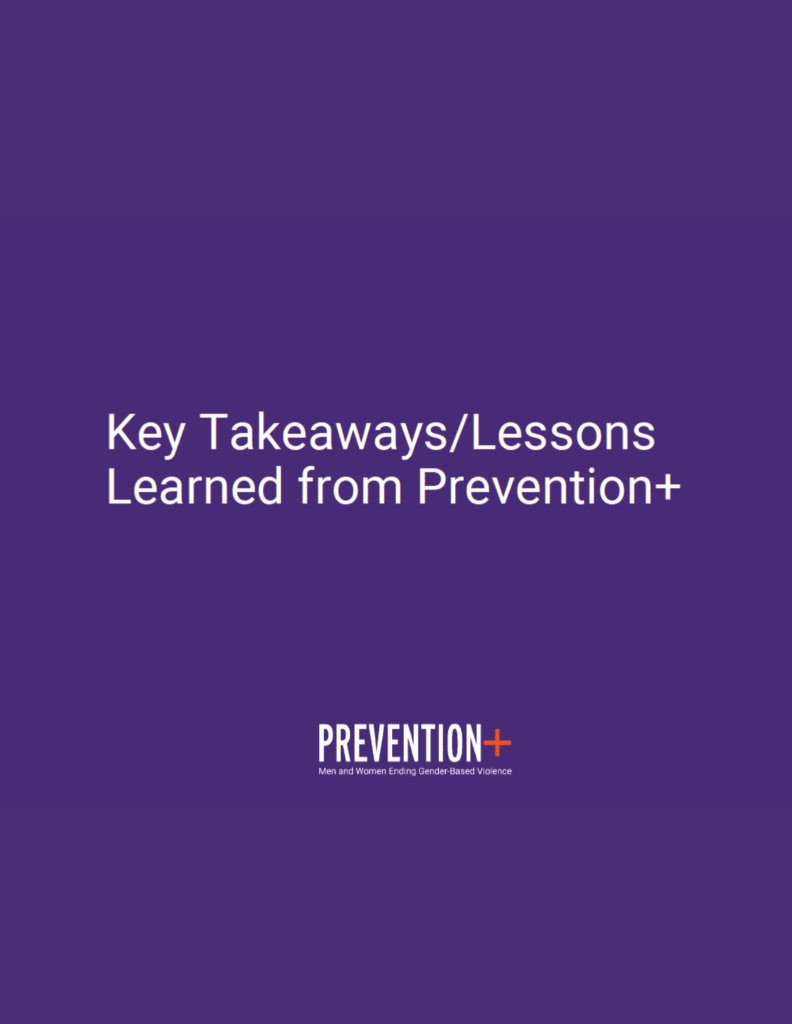
After five years of implementation, Prevention+, a multi-country violence-prevention program, has come to an end – with impressive impacts, valuable lessons learned, and strong partners that continue to work toward ending gender-based violence.
The program aimed to contribute to a world where healthy, respectful, and equal relationships are the norm. Designed to work across four levels of society (individual, community, institutional, and government) for sustained impact, Prevention+ partners engaged boys and men as partners and advocates for change – alongside girls and women – to challenge and transform harmful gender norms and practices that lead to violence.
When it came to implementation, this year was particularly tumultuous: all partners worked to adapt their activities in response to the COVID-19 pandemic. Furthermore, country-specific challenges led to increased risk: in Lebanon, sanctions contributed to the worst economic crisis in 40 years, and spurred revolutions, causing our colleagues at ABAAD to be concerned about their safety and the safety of participants, some of whom are refugees facing increased risk of arrest and deportation.
Despite these considerable challenges and hardships, participants in Prevention+ still derived such positive individual and community benefits that they were eager for the program to continue uninterrupted. We at Equimundo spoke with our colleagues Shyikiro Gimu Ntayoberwa, Field Coordinator at RWAMREC in Rwanda and Anthony Keedi, Masculinities Technical Advisor at ABAAD in Lebanon and asked them to share some personal and institutional reflections from the program across its five years, its impact on their communities, and their partnership with us. Here’s what they had to say:
Impact on communities
In Rwanda, reflections from RWAMREC underscored that working within and strengthening existing structures, rather than building new ones, was critical to and beneficial for ensuring sustainability and lasting change. Parents, who were reached through Parents Evening Dialogues (PED), became aware of and more equipped to report gender-based violence cases, and to make referrals to service providers. Men and women were so positively impacted by the program, that they were motivated to attend the sessions, with increases in the number of men – without any additional incentive. When it came to working with younger people, the Youth for Change Clubs aimed to prevent gender-based violence and early pregnancy; these clubs contributed to reducing girls’ school dropout rates, and to young people being better informed about their rights.
Despite the difficult climate in Lebanon, reflections from ABAAD underscored that participants really benefited, including men, “who were having a good time discussing issues with other men and to an extent, the humanity taken away from them; who realized that they should be more open to emotions, should be able to spend more time with their families; who want less stressors.” Furthermore our colleague shared, “Communities saw that relying on family and being good to each other was what was going to pull us through. Women got to have dialogues about gender roles with their husbands with empathy; husbands were kinder to their children and listened to them more.” As a result of these positive reports, despite challenges, ABAAD decided to continue running activities via a condensed program, hosting multiple sessions a week.
Advice for future impact: lessons learned over the five years
Our partners affirmed key insights that contributed to Prevention+’s success over the years, including that:
- Strong collaboration among community participants, civil society, local authorities, and other government officials can ensure accountability at all levels.
- Working within existing structures – rather than building new ones – can increase the number of people reached, and the accessibility of the program: regardless of location, age, education, or religion.
- A multi-country approach can provide opportunities for learning, collaboration, advice, innovation, and insight, leading to overall improvements in program implementation.
- Flexibility is important – especially in crisis moments. Taking time to rethink the ways that programs are typically delivered or participants are usually engaged, can build stronger, more dynamic teams.
Partnership with Equimundo
Our colleague at RWAMREC noted that working together with Equimundo helped to facilitate collaboration with authorities at all levels and with other government institutions; and that Equimundo’s programs aimed at fathers (Program P), teenagers and young men and women (Programs H and M) were particularly helpful resources, noting they: “are easily adaptable to change and orient beneficiaries as well as government institutions, [contributing] to behavior change.”
For ABAAD, respect, complementarity, and shared capacity-building have been the cornerstone of the partnership with Equimundo. In addition, our colleague noted that Equimundo’s evidence-based mantra and commitment to promoting healthy, alternative forms of masculinity, and understanding of militaristic masculinities have been particularly relevant to Lebanon and other conflict areas. In the last year, with COVID-19 and the explosion in Beirut, ABAAD and Equimundo strengthened their partnership through empathy, mutual understanding, and adaptability.
Advice for future partnership
In envisioning future collaborations, our partners emphasized that we should:
- Affirm that all groups who are part of the project – faith-based organizations, couples, youth, media, community, and so on – join at the same time.
- Secure funding to accompany and transition the end of projects in order to support sustainability and ownership of the project at the community level.
- Based on the field experience, once funds are raised, involve all stakeholders and distribute funds to cover each area of intervention, in order to increase impact at the community level.
- Center context-specific solutions, especially with consideration to: access, infrastructure, and overall realities in the program country.
Prevention+ began in 2016 and was led internationally by Rutgers in partnership with Sonke Gender Justice, Equimundo, and MenEngage Alliance. The program comes to a close in 2020 in four countries: implemented and led nationally in Indonesia by Rutgers WPF Indonesia, in Lebanon by ABAAD – Resource Center for Gender Equality, in Rwanda by Rwanda Men’s Resource Center (RWAMREC), and in Uganda by Reproductive Health Unit (RHU).

